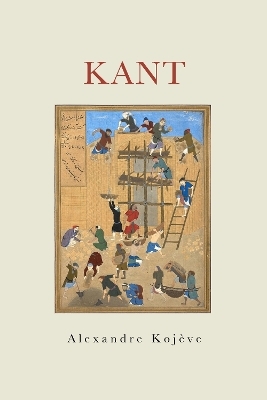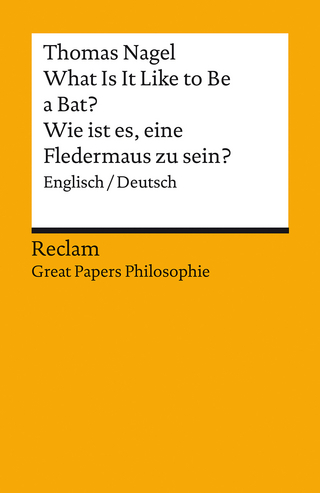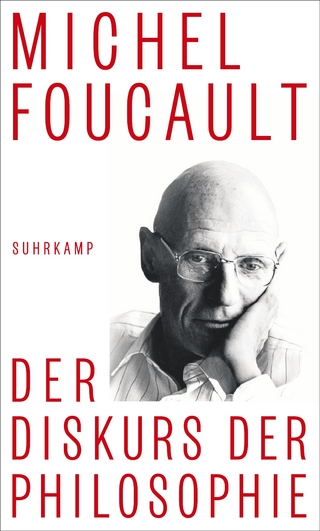
Kant
Seiten
2025
|
Paperback original
Verso Books (Verlag)
978-1-80429-065-1 (ISBN)
Verso Books (Verlag)
978-1-80429-065-1 (ISBN)
- Noch nicht erschienen (ca. Juni 2025)
- Versandkostenfrei innerhalb Deutschlands
- Auch auf Rechnung
- Verfügbarkeit in der Filiale vor Ort prüfen
- Artikel merken
Kant forms the centrepiece of Alexandre Kojeve's intriguing discovery of objective reality and its repressed history in Western philosophy
During the early 1950s, Alexandre Kojève resumed his ambitious project to bring the analytic reason of Kantianism in line with Hegel's logic and philosophy of history. Kant is one of the most extensive text fragments where Kojève turned his attention to the gaps left open in the system of critical philosophy. Published in its raw, unedited form in 1973, in the aftermath of the anti-Hegelian drift of the student-led revolt of May 68, the book has remained largely unexplored, despite its protean influence on various "returns" to Kant, from Weil to Deleuze, and from Foucault to Tosel and beyond. Kant is a deep and provocative text, equal in breadth and depth of insight to the famous Introduction to the Reading of Hegel.
Kant's philosophical system, Kojeve argues, is haunted by the Thing-in-itself, as the ultimate expression of 'bourgeois hypocrisy' and its internally divided reason between action and discourse. Making a case for the post-historical moral imperative to turn away from infinite progress and the practical justification of the ideas of God and the immortality of the soul, Kant outlines the material conditions of possibility of revolutionary action within the twin horizon of accomplished and recollected history.
During the early 1950s, Alexandre Kojève resumed his ambitious project to bring the analytic reason of Kantianism in line with Hegel's logic and philosophy of history. Kant is one of the most extensive text fragments where Kojève turned his attention to the gaps left open in the system of critical philosophy. Published in its raw, unedited form in 1973, in the aftermath of the anti-Hegelian drift of the student-led revolt of May 68, the book has remained largely unexplored, despite its protean influence on various "returns" to Kant, from Weil to Deleuze, and from Foucault to Tosel and beyond. Kant is a deep and provocative text, equal in breadth and depth of insight to the famous Introduction to the Reading of Hegel.
Kant's philosophical system, Kojeve argues, is haunted by the Thing-in-itself, as the ultimate expression of 'bourgeois hypocrisy' and its internally divided reason between action and discourse. Making a case for the post-historical moral imperative to turn away from infinite progress and the practical justification of the ideas of God and the immortality of the soul, Kant outlines the material conditions of possibility of revolutionary action within the twin horizon of accomplished and recollected history.
Alexandre Kojève (1902-1968) was one of the major philosophers of the 20th century. His famous lectures on Hegel and his provocative end of history thesis left an indelible mark on contemporary thought. By the end of the Second World War, he abandoned academic philosophy to embark on a diplomatic career. While occupying an influential position in French foreign trade diplomacy, Kojève worked on a series of manuscripts towards a system of knowledge, which have largely remained unpublished until well after this death. Initially dismissed as post-historical irony and play, Kojève's post-war philosophical writings should open new perspectives on how we became post-historical and what ways we go from there.
| Erscheint lt. Verlag | 24.6.2025 |
|---|---|
| Übersetzer | Hager Weslati |
| Verlagsort | London |
| Sprache | englisch |
| Maße | 153 x 234 mm |
| Gewicht | 400 g |
| Themenwelt | Geisteswissenschaften ► Philosophie ► Philosophie der Neuzeit |
| Sozialwissenschaften | |
| ISBN-10 | 1-80429-065-3 / 1804290653 |
| ISBN-13 | 978-1-80429-065-1 / 9781804290651 |
| Zustand | Neuware |
| Informationen gemäß Produktsicherheitsverordnung (GPSR) | |
| Haben Sie eine Frage zum Produkt? |
Mehr entdecken
aus dem Bereich
aus dem Bereich


